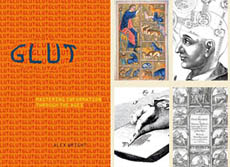The Six Paramitas: Part 3
October 1, 2003
Continuing notes from Jay Lippman's class on the Six Paramitas:
The third paramita is zopa, or patience.
Like so many Tibetan terms, this one translates imprecisely into English. For us, "patience" usually means something like a willingness to wait a long time; that's not quite the point here. The word zopa translates more accurately to "non-aggression."
As with the other paramitas, this one divvies up into three categories:
- Overcoming other people's destructiveness
Pretty much what it says: resisting the urge to react negatively to other people's aggressions.
- Understanding the nature of aggression
Recognizing that the root cause of everyone's aggression - including our own - lies in our innate state of dissatisfaction: or, samsara.
- Patience of individual examination
This is the hard part. The practice here is to get in touch with your own various states of irritation. When you look closely, you discover that irritation and aggression are happening almost constantly, often at subtle levels of awareness.
All of which can sound pretty discouraging. But the fundamental point here is not to struggle with your aggression - which just creates more aggression - but rather to investigate it more closely. As Trungpa puts it: "Experiences of irritation are some kind of message. Sometimes the message is disruptive and messy, but on the other hand, it is a true, good message."
In class, Jay pointed out how to approach aggression from each of the three yanas or Buddhist vehicles:
- In the hinayana path, one renounces aggression by embracing the opposite point of view (for example, if one feels anger towards someone, one tries devoutly to understand the situation from their point of view).
- In the Mahayana path, one works with anger by aspiring "to drive all blames into one," as the lojong slogan goes, to relieve the suffering of others by absorbing it into oneself.
- In the Vajrayana path - the most difficult practice of all - one transforms the burning energy of anger into clear, mirror-like wisdom (warning: don't try this at home)
All of which, of course, is way easier said than done.
Previously:File under: Dharma
_____________________« Goodbye brisket yarmulke? | Union card? »
GLUT:
Mastering Information Through the Ages
New Paperback Edition
“A penetrating and highly entertaining meditation on the information age and its historical roots.”
—Los Angeles Times
